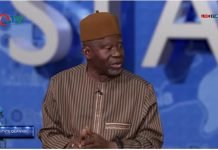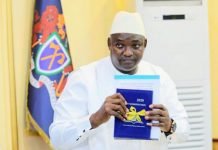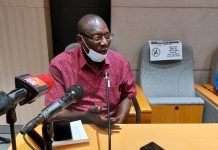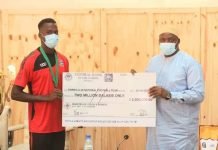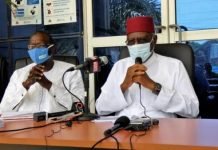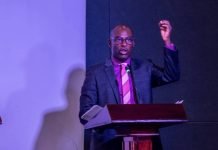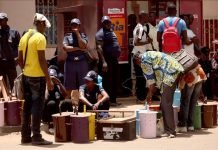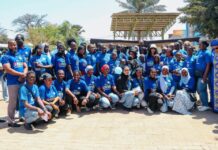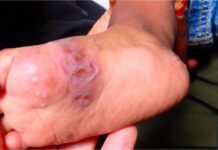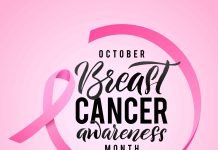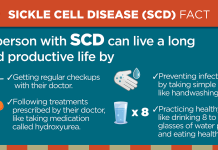
Ahead of the Gambia’s December 4 elections, the country witnessed its first presidential debate aimed at ensuring voters got first-hand information and understood the policy options of contesting candidates.
The November 20 debate saw 2 out of the 6 contesting presidential candidates engage citizens, sharing their understanding of the country’s current economic situation and their policy proposals for turning the country’s fortunes around.
Full video on Facebook, here: https://www.facebook.com/PTVGambia/videos/2114767235365142
This fact-check report sought to verify 4 claims made by Independent Candidate, Essa Mbye Faal and Halifa Sallah, the presidential candidate of PDOIS (The People’s Democratic Organisation for Independence and Socialism).
Claim: D667 million allocated to the office of the president
Source: Essa Mbye Faal
Verdict: UNDERSTATED
Between minutes 44:00 and 45:00, Presidential Candidate Essa Faal said: “I am opposed to D 667 million being sent to the office of the president to do nothing for us other than travel or luxury travel. That money should have been used for the development of the province,”
So, to verify this claim, we perused the national budget statement.
Fact Check
On page 2 of Gambia’s 2022 Executive Budget Proposal, FactSpace Gambia found that D 672 million was allocated to the office of the president as captured under the Budget Appropriation Report section.

Verdict: The claim UNDERSTATED the allocation to the Office of the President.
……………….
Claim: The Gambia is rated as the second to last in a list of worst to do business countries
Source: Essa Mbye Faal
Verdict: TRUE
“Forbes Magazine has listed Gambia as second to last country for worst to do business in the world. It means we beat only Chad, which is a country at war.” Essa Faal said between minutes 1: 48: 30 and 1: 49: 00.
Fact-check
Forbes, an American business magazine, has been rating 153 nations on business friendliness and producing a report called the Best and Worst Countries for Business.
The ratings are based on 15 different factors: property rights, innovation, taxes, technology, corruption, infrastructure, market size, political risk, quality of life, workforce, freedom (personal, trade and monetary), red tape and investor protection.
According to the 2018 version of the Best and Worst Countries for Business, the Gambia was rated last but one among 153 countries. Efforts by our team of fact-checkers to access the most recent reports by Forbes were unsuccessful.

Verdict: The claim is TRUE.
…………………
Claim: 27% of roads in the Gambia have been built
Source: Halifa Sallah
Verdict: FALSE
Between minutes 42:25 and 43:00, the presidential candidate of PDOIS, Halifa Sallah said: “As it stands 27% of our roads are built.”
Fact-check
According to the 2020 Transport Statistics Summary Report by the Gambia Bureau of Statistics, the total percentage of roads built in the Gambia currently stands at 32.96%.

Verdict: The claim is rated FALSE.
………………..
Claim: Agriculture contributes just about 19% of GDP, industry 20%, Services 55%”
Source: Halifa Sallah
Verdict: MIXTURE
Between minutes 1: 50: 11 and 1: 51: 00, Halifa Sallah, said “The economy has 3 elements, Agriculture contributes just about 19% of GDP, industry 20%, Services 55%”
Fact-Check
According to the Gambia Bureau of Statistics, Agriculture contributes 19% of GDP, Industry 15%, while the Services sector contributes 63% of the country’s GDP.
So, while the claim about the Agriculture sector was accurate, the claims about industry and the services sectors are inaccurate.

Verdict: The claim is a mix of accurate and inaccurate content.
Researched by: Vivian Adams, Samuel Williams and Rabiu Alhassan
- FEATURED IMAGE: SEREKUNDA, GAMBIA – APRIL 04: Officials of Gambian Independent Electoral Commission make preparations with police escort ahead of parliamentary elections on April 04, 2017 in Serekunda, Gambia. Gambians will vote for parliament on 6th of April 2017. ( Yusupha Sama – Anadolu Agency )
